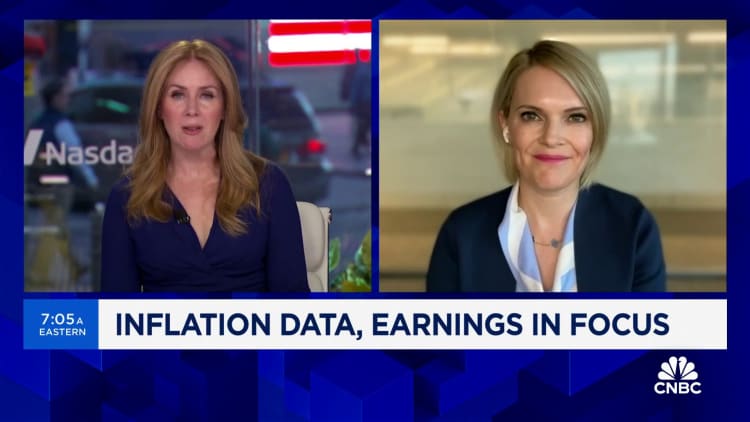A man checks the label on a jar of vitamins at a Costco Wholesale store on April 3, 2024 in Colchester, Vermont.
Robert Nickelsberg | Getty Images
Small business confidence hit its lowest level in more than 11 years in March as owners fear inflation is still a big problem.
At a time when other data shows falling inflation, the National Federation of Independent Business reported Tuesday that its survey showed a reading of 88.5, down nearly a point from February to the lowest level since December 2012.
A quarter of those surveyed believe the biggest problem is rising costs.
“Small business optimism has reached its lowest level since 2012 as owners continue to navigate numerous economic headwinds,” said Bill Dunkelberg, chief economist at the NFIB. “Inflation was once again reported as the top issue for businesses on Main Street and the job market eased only slightly.”
A quarter of respondents cited inflation, and in particular rising input and labor costs, as the most pressing problem. According to the seasonally adjusted data, a net 28% reported increasing average selling prices for the month and 33% planned further price increases.
As part of these rising costs, a net 38% said they had increased compensation, up 3 percentage points from February’s reading which was the lowest since May 2021. The Department of Labor reported on Friday that pay average hourly increased 0.3% in March and 4.1% from a year ago.

The survey is accompanied by other indicators that show that inflation, while not eradicated, is at least declining.
A Commerce Department measure of personal consumption expenditure prices pegged the annual inflation rate at 2.5% in February. The measure, which the Federal Reserve uses as its main gauge of inflation, showed a level of 2.8% excluding food and energy, which policymakers favor as a better signal of long-term trends.
The consumer price index, a data most followed by the public, will be released on Wednesday and is expected to show a headline rate of 3.4% and a core rate of 3.7%. Fed policymakers are targeting annual inflation of 2%.
Inflation expectations have been quite well anchored in recent months. A New York Fed survey on Monday showed that March respondents expect a rate of 3% next year, unchanged from February. The three-year outlook increased slightly, but the five-year expectation decreased.
However, the survey showed a big jump in rent increase expectations: 8.7% over the next year, an increase of 2.6 percentage points from February. The decline in “insurgent” inflation is at the heart of the Fed’s thesis that inflation will continue to fall towards the central bank’s 2% target, allowing for interest rate cuts later in the year.
Fed respondents also said they expected substantial price increases for most other major components. They expect gas prices to rise 4.5% next year and food prices to rise 5.1%, both 0.2 percentage points higher than the February survey.